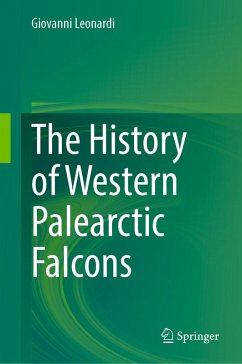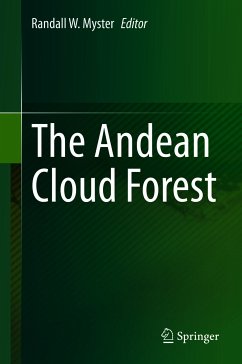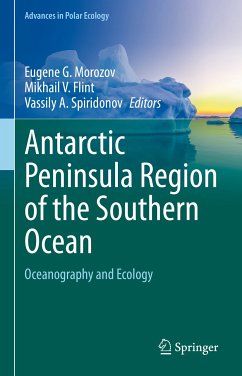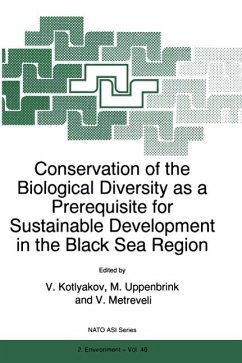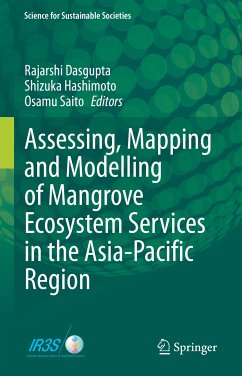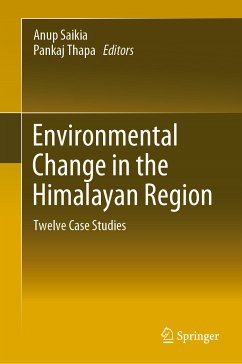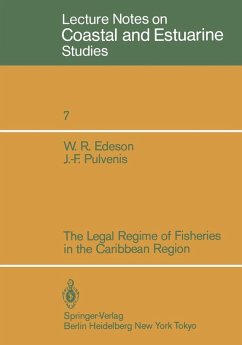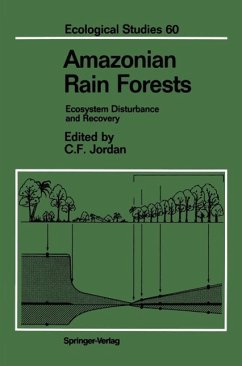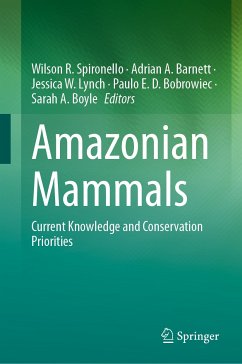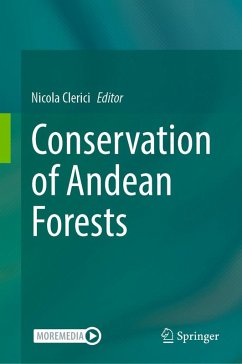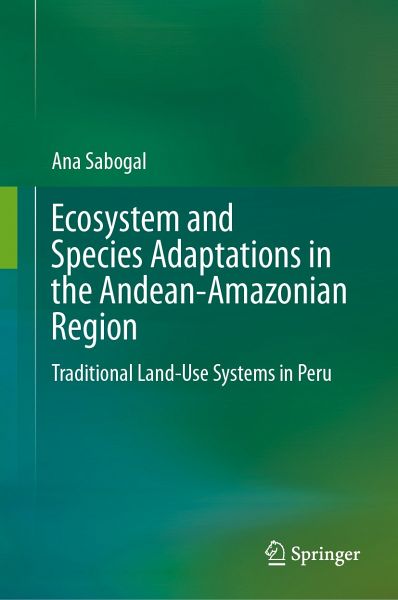
Ecosystem and Species Adaptations in the Andean-Amazonian Region (eBook, PDF)
Traditional Land-Use Systems in Peru
Versandkostenfrei!
Sofort per Download lieferbar
88,95 €
inkl. MwSt.
Weitere Ausgaben:

PAYBACK Punkte
44 °P sammeln!
This book focuses on ecosystems and species adaptations in the unique Peruvian Andean-Amazonian region. The presence of the Andes as the backbone is the cause of the huge ecosystem diversity and biodiversity of species that characterize the Andean-Amazonian ecosystems. The complex orography of Peru as results of the Andes presence in its tropical setting favors the occurrence of local climatic features that provide diverse environmental conditions for multiple, unique plant and animal species, many of them endemic to the Andes. The book will introduce the reader to the climatic history and geo...
This book focuses on ecosystems and species adaptations in the unique Peruvian Andean-Amazonian region. The presence of the Andes as the backbone is the cause of the huge ecosystem diversity and biodiversity of species that characterize the Andean-Amazonian ecosystems. The complex orography of Peru as results of the Andes presence in its tropical setting favors the occurrence of local climatic features that provide diverse environmental conditions for multiple, unique plant and animal species, many of them endemic to the Andes. The book will introduce the reader to the climatic history and geography of the Peruvian Andes and the Peruvian Natural Areas Protection system focusing on the Manu and Northwest biosphere reserves given their relevant ecological importance as well as the relationship between them and the local population. Important global topics like urbanization, deglaciation and global warming will be analyzed and discussed due to their impact in the Andes-Amazon ecosystems.Finally, the traditional land-use systems, agrobiodiversity and agrodiversity in Peru are present and linked with the climate change adaptations.
Dieser Download kann aus rechtlichen Gründen nur mit Rechnungsadresse in A, B, BG, CY, CZ, D, DK, EW, E, FIN, F, GR, HR, H, IRL, I, LT, L, LR, M, NL, PL, P, R, S, SLO, SK ausgeliefert werden.



